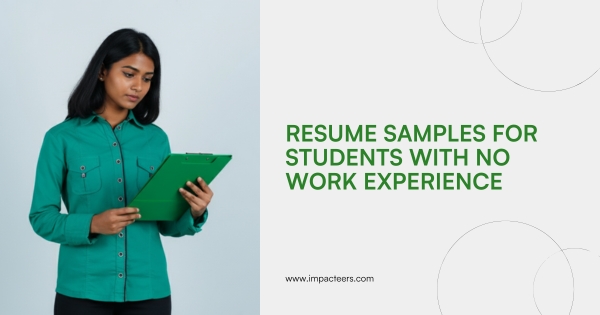In-demand skills are the key to today’s competitive job market. As we move in 2025, employers are looking for candidates who can mix technical expertise with strong problems-solution, communication and adaptability.

2025 is not business as usual. The way we work, connect, and grow in our careers is shifting fast. Job titles and degrees still matter, sure, but they’re no longer the full story. What really gets you noticed now? Skills. The kind that makes life easier for your team, your clients, and your boss.
To Explore more >>https://blog.impacteers.com/
This isn’t another generic “what employers want” article. This is the real thing. Let’s break down the five skills companies are practically begging for in 2025 and how to actually get good at them (no corporate speech, promise).
Why In-Demand Skills Matter for Career Growth
1. Communication That Doesn’t Make People Tune Out
We’ve all sat through a meeting that could’ve been an email and then gotten an email that said nothing. Communication in 2025 isn’t about sounding smart. It’s about getting through to people. Listening when it counts. Writing like a human. Speaking so others feel seen. Having the right in-demand skills can mean the difference between landing your dream job or being overlooked.
What It Comes Down To
- Listening Skills: Actually hearing what’s said and what isn’t.
- Simplicity Over Jargon: Clarity wins, every time.
- Tone Awareness: Knowing when to be direct, when to be diplomatic, and when to throw in a “hey, just checking in.”
Try This
- In your next meeting, repeat back what someone said before responding. It’ll feel weird, but it works.
- Ditch filler words in emails. “Just wanted to say” = gone.
- Ask a friend to give feedback on your tone in Slack or text. You’ll be surprised what they notice.
How to Work It Into Your Resume
Skip “strong communicator.” Say: “Cut team email chains by 30% through better standups and clear documentation.”
2. Tech & Digital Development, Even if You’re Not ‘Techy’
No, you don’t need to code. But if you can’t navigate today’s tools, you’ll struggle to keep up. It’s about confidence with platforms, not perfection. Can you figure out how a new app works without spiraling? Can you troubleshoot when Zoom freaks out?
The Essentials
- Tool Literacy: Know the tools your team uses and how to Google the rest.
- Automation: Save yourself from repetitive tasks. (Hello, Zapier.)
- Data Awareness: Know how to read a dashboard or at least ask smart questions about it.
How to Start
- Watch one 10-minute YouTube video on a tool you’ve never used. That’s it.
- Sign up for one newsletter from a tech educator (like TLDR.tech).
- Ask that tech-savvy coworker to explain one thing a week. Buy them coffee.
Resume It Like This
“Introduced Notion to manage internal docs, saving 5+ hours/week in back-and-forth.”
3. Interpersonal Skills That Build Real Trust
Being likable isn’t a “soft” skill, it’s a superpower. If people don’t trust you, they won’t follow your lead or give you honest feedback. And if you don’t know how to handle hard conversations? You’ll stay stuck.
What It Looks Like IRL
- Empathy: Picking up when someone’s off and adjusting.
- Conflict Calmness: Staying level-headed when tensions rise.
- Reliability: Following through. No ghosting on tasks or people.
How to Get Better
- Check in with teammates just to ask how things are going (no agenda).
- After a heated meeting, follow up with: “Hey, I might’ve come off sharp, thanks for sticking with me.”
- Keep a mental note of when you felt heard and who helped make that happen. Learn from them.
On Your Resume
Try something like: “Coached new hires and resolved client concerns, improving team satisfaction scores by 25%.”
4. Problem Solving That’s More Than Guesswork
Nobody’s looking for someone to just “do the job.” They want someone who can figure it out when things get messy. Who notices problems before they become fires. Who fixes stuff and makes things better.
Key Traits
- Curiosity: You’re not afraid to ask why something works or doesn’t.
- Creativity: Not the artsy kind, but the “what if we tried it this way?” kind.
- Follow-Through: Ideas are nice. Execution is better.
Get Started
- Keep a “fix it” list at work. Every week, tackle one.
- Ask “what’s not working?” in team meetings and write down the answers.
- Volunteer to test a new system or pilot a change. You’ll learn by doing.
Resume-Ready Example
“Redesigned intake process to cut client wait times by 40% with zero budget increase.”
5. Adaptability: The Real MVP Skill
Surprise! The platform changed. The team was reorganized. The client pivoted. If you can stay cool, curious, and willing to adjust, your gold. Employers are tired of people who resist every shift. They’re craving people who say, “Alright, what’s next?”
The Mindset
- Flexibility: Not in a pushover way, in a “I’m here to help” way.
- Proactivity: You see change coming and prep early.
- Learning Love: You like picking up new things (or at least fake it well).
How to Train It
- Change one routine a week, commute, lunch spot, playlist.
- Ask your manager what’s changing in the next quarter and how you can prep.
- Take notes when you feel resistance to change. What is real fear?
Resume Magic
“Got into a newly formed team mid-project and helped hit deadline ahead of schedule.”
In the coming years, skills like AI literacy, sustainability knowledge, and cross-cultural collaboration will gain even more value. Professionals who keep learning and evolving will always remain ahead of the curve.Future Outlook for In-Demand Skills
The Real Takeaway
Here’s the truth: you don’t need to master all five skills overnight. You just need to work on them. Employers care less about where you are and more about the direction you’re headed.
So, pick one. Try something small this week. You’ll be amazed how fast little shifts lead to big growth.
In 2025, it’s not about looking perfect. It’s about showing up ready to improve, ready to learn, and ready to make things better, for your team and for yourself.
Take the skill assessment test at impacteers. Assess Yourself and gain valuable insights!

Mastering in-demand skills is no longer optional — it’s a career necessity. By developing these abilities, you not only make yourself more attractive to employers but also future-proof your career in a constantly changing job market.
FAQs
1. How can I tell if I already have these skills? Think back to when a coworker thanked you or asked for help. What were you doing? That’s usually where your strengths shine.
2. Are soft skills really that big of a deal? Yep. They’re what turn a good hire into a great teammate and a leader. Don’t sleep on them.
3. How do I talk about these skills without sounding fake? Tell real stories. Think, “Here’s what happened, what I did, and what changed.” Simple.
4. Should I list these on my resume or just show them in interviews? Both. Show, don’t tell back every skill with a real result.
5. I’m overwhelmed. What is one thing I can do today? Pick one uncomfortable thing, ask for feedback, learn a new tool, and speak up in a meeting. One step forward is still forward.



Post Comment